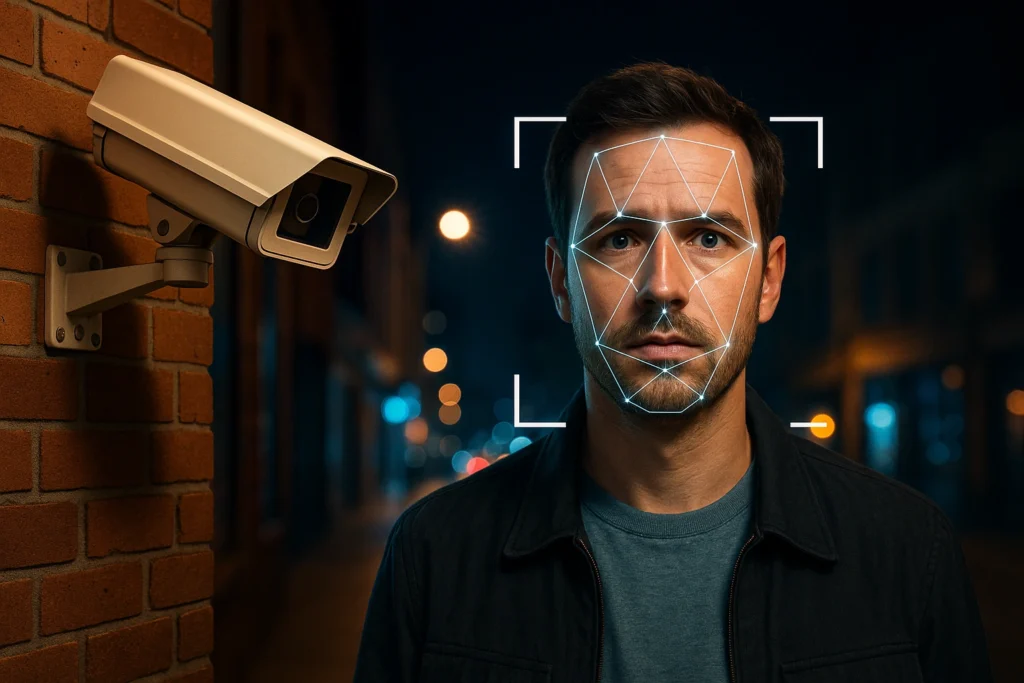Bristol, Virginia’s police department has quietly begun using an AI-powered facial recognition system tied into massive public-image databases—raising fresh concerns over residents’ privacy and potential errors. The tool, reportedly Clearview AI, scans footage from local surveillance cameras and matches faces against billions of images scraped from websites like social media and public records.
The launch, confirmed by both a 5‑day‑old Yahoo report and the department’s own statement, marks a new chapter for law enforcement in Virginia. Officials highlight faster suspect identification—sometimes cutting down what once took days into mere minutes. But critics argue that speed shouldn’t trump accuracy, transparency, or fundamental rights.
Why This Matters
Virginia passed a law in 2022 (SB 741) overriding a previous FRT ban, allowing police use under strict conditions like annual audits, public policies, and performance thresholds set by NIST. Yet Bristol’s rollout has critics worried—has the community even been told? And are safeguards keeping pace?
How the System Works and What Could Go Wrong
Clearview AI’s database reportedly holds over 20 billion to 60 billion images pulled from public sources. It matches faces by converting them into unique “faceprints” and returning possible suspects ranked by similarity.
But algorithms are far from flawless. Research shows FRTs misidentify Black people and women at significantly higher rates than white men. Other studies highlight how even disabilities can skew results—faces with Down syndrome, for example, often trigger false positives.
Past Mistakes: Lessons to Learn
The implications are real. In Detroit, Robert Williams was falsely arrested in 2020 after Clearview flagged him from blurry video footage—he spent 30 hours in custody before being exonerated. Cases like his triggered policy reforms and new oversight in Michigan.
However, wrongful arrests continue. One survey shows at least seven false arrests nationally tied to FRT matches. This isn’t hypothetical—it’s happening now.
Privacy vs. Security: A Delicate Balance
Civil-liberty groups argue that scanning everyone—even individuals not suspected of any crime—amounts to mass surveillance. Katie Kinsey, from the Policing Project, notes that “you’d have to have no presence on the internet to not be in that database”.
Meanwhile, legislation is trying to catch up. Of the fifteen states with FRT regulations, only a few—like Utah, Montana, and New Jersey—require warrants or formal notifications before deploying matches.
What Bristol Needs to Do—And Soon
- Inform and engage the public – Town halls, online transparency portals, policies posted online—residents deserve clarity.
- Enforce checks and audits – Routine accuracy tests, error tracking, and reporting breaches or misuse must be public.
- Limit usage strictly – FRT should be used post-crime, with warrants or judicial oversight, not for real-time public monitoring.
- Protect data aggressively – Strong rules around retention, sharing, and deletion of faceprints prevent “surveillance creep.”
- Monitor bias and accuracy – Independent studies should measure disparities and error rates across demographics.
Voices of Caution
Nate Wessler of ACLU sums it up: “When police rely on it… people’s lives can be turned upside down”. Echoing that—Robert Williams’ case shows how one false match creates serious fallout.
There’s hope: SB 741 demands high-accuracy algorithms, audits, and public disclosure—but only if agencies actually follow those rules.
What Comes Next for Bristol
Local officials now face a choice: proceed with transparency and robust safeguards, or push ahead quietly and risk serious public backlash. Real oversight could make Bristol a model for responsible AI use. Get it wrong, and trust could be gone before the technology even proves itself.
Conclusion
Bristol’s adoption of AI facial recognition centres on resolving crimes faster, but it teeters on a knife-edge. Without clear communication, strict oversight, and measurable accountability, the system risks false arrests, biased matches, and sweeping surveillance in a town that may barely know it’s underway.
